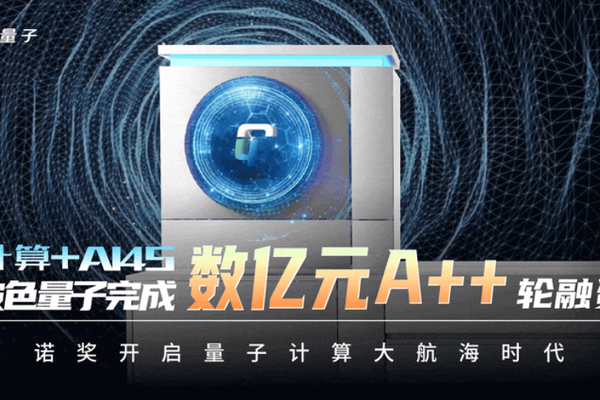Recently, Beijing Boson Quantum Technology Co., Ltd. (hereinafter referred to as “Boson Quantum”) completed hundreds of millions of yuan in Series A++ financing. This round of financing was jointly led by Huade Science and Technology Innovation and Nanshan Strategic Emerging Investment, followed by well – known institutions and listed companies such as GF Xinde, Hunan Caixin Industrial Fund, and Weide Information (688171). The old shareholder Qifu Capital continued to increase its investment.
The funds will be continuously used for the company’s: ① R & D of “special – purpose” coherent optical quantum computers and “general – purpose” optical quantum computers; ② Construction of quantum computing chip process capabilities; ③ Construction and operation of the first large – scale special – purpose optical quantum computer manufacturing factory in China in Nanshan District, Shenzhen; ④ Expansion of the business ecosystem for the integrated application of “quantum computing + AI”.
This financing is another affirmation of Boson Quantum as a representative enterprise in practical quantum computing in China. This achievement is not an isolated event but is set against the backdrop of the global quantum computing investment boom. Previously, from the industry trends of technology giant NVIDIA’s systematic investment in PsiQuantum for the optical quantum route, QuEra for the neutral atom route, and Quantinuum for the ion trap route, we clearly saw the firm confidence of global top – tier capital in the commercialization and industrialization prospects of quantum computing. Boson Quantum’s current financing is a vivid manifestation of China’s steady progress and high attention in this global innovation competition. It marks a good two – way interaction between Chinese quantum start – ups and the capital market, highlighting the company’s importance as a core value platform in the quantum computing industry. With stable real – machine operation and an application ecosystem barrier, Boson Quantum will further play a benchmarking and exemplary role in the industry and continuously promote the commercialization and industrialization of quantum computing.

The Nobel Prize Crowns Quantum Computing for the First Time: Opening an Era of Diverse Exploration
On October 7, 2025, the announcement of the 2025 Nobel Prize in Physics wrote a historical footnote for quantum computing: John Clarke, Michel H. Devoret, and John M. Martinis won the award “for the discovery of macroscopic quantum mechanical tunnelling and energy quantisation in an electric circuit”. This breakthrough discovery forty years ago gave rise to the research direction of superconducting quantum computing and also brought to the fore the scientific problem of “reducing various interference factors such as noise and temperature in macroscopic quantum systems to the single – quantum level”, which remains a key research topic for researchers to this day. Forty years later, on the centenary of the birth of quantum mechanics, this honor will further encourage scientists and engineers to explore a wide range of paths for realizing quantum computers: whether it is the manipulation of macroscopic systems such as superconductors or the manipulation of microscopic systems such as photons, trapped ions, and neutral atoms; whether it is the construction of Turing – complete gate – based quantum computers or non – gate – based quantum computers that can be practically used in specific fields in the short term. Their work is like the lighthouse at the start of the great quantum computing exploration era, now illuminating the magnificent journey where general – purpose and special – purpose routes run in parallel and multiple technological paths compete!
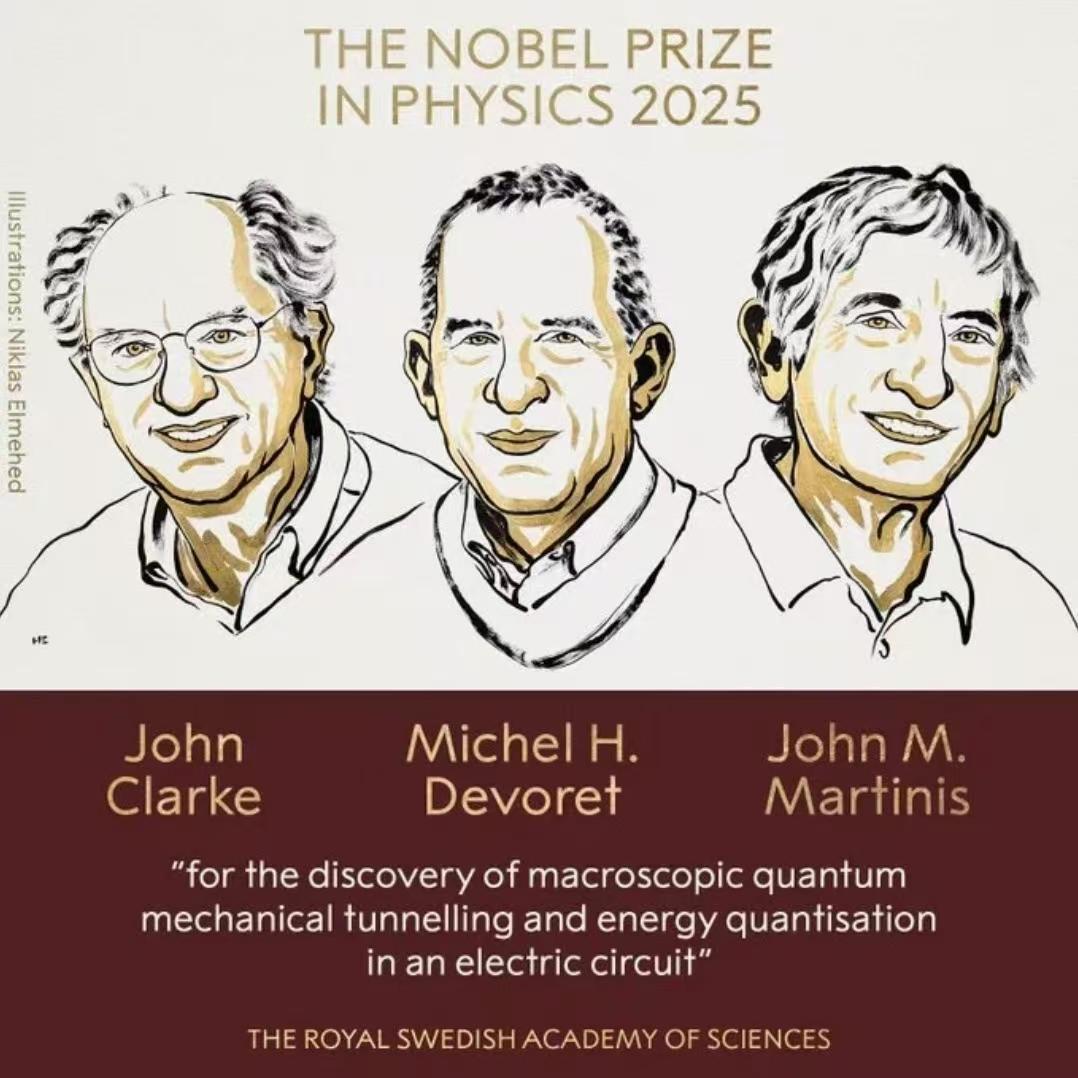
From an application perspective, today’s quantum computing has clearly differentiated into two major technology camps: general – purpose and special – purpose. General – purpose quantum computers aim to implement arbitrary quantum algorithms, rely on core features such as quantum entanglement and superposition, and pursue universal computing capabilities. Their development requires breakthroughs in hardware technology bottlenecks such as high – precision quantum bit control and error correction, as well as the development of useful gate – circuit algorithms to prove “quantum superiority” in more practical fields. Special – purpose quantum computers focus on optimizing a specific series of high – value and reusable problems. By customizing quantum physical systems, they improve the solution efficiency. Although their application scope is limited to a certain extent, custom – developed for a large class of application scenarios lays a practical foundation and market space. They are the main force in current industrial applications, achieving commercialization first in the NISQ (Noisy Intermediate – Scale Quantum) era.
In this dual – track industrial landscape, Boson Quantum, based on the optical quantum system, has a forward – looking layout for full – stack R & D capabilities in special – purpose and general – purpose quantum computing. Starting with special – purpose quantum computers, it has accumulated practical algorithms and obtained commercial orders in multiple fields such as artificial intelligence, biopharmaceuticals, and finance, and cultivated a mature group of quantum application developers. At the same time, it has made long – term investments in general – purpose optical quantum computers and quantum – classical hybrid computing capabilities to meet actual needs. Taking light as the path and application as the priority, Boson Quantum continuously transforms the theoretical potential into real productivity for progress and is committed to becoming a core force in promoting quantum computing to truly enter the industry.
“Quantum” Hardware Is Just the Starting Line, and the Comprehensive Practicality of the “Computing” System Is the Key Point
From the fundamental discovery recognized by the Nobel Prize to the current development of multiple technological routes, quantum computers face more comprehensive requirements on their way from the laboratory to industrial applications. An improvement in a single physical indicator does not equal the practicality of a quantum computer. In today’s era where computing power has become the core productivity of various industries, the breakthrough in quantum hardware is just the “starting line” for building new – quality productivity. Whether it can achieve stable, reliable, and scalable computing capabilities, whether it provides available and user – friendly algorithm development tools, and whether it can efficiently adapt to the ever – changing AI frameworks and demonstrate practical value beyond classical computers in real – world use cases are the real expectations of the market for quantum computers.
In the current Noisy Intermediate – Scale Quantum (NISQ) era, “general – purpose” quantum computers based on different physical systems have made great progress in physical indicators such as scalability, connectivity, coherence time, fidelity, and error correction. However, no system has been able to overcome all technical difficulties to construct even one complete fault – tolerant logical qubit and has not yet obtained the “entry ticket” for practical quantum computing. In contrast, “special – purpose” quantum computers avoid the complex construction of logical gates, have relatively easier control over error rates and decoherence problems, reduce the complexity of operations, and have highly scalable quantum bit numbers. They currently have the ability to provide stable computing power for long – term operation.
Boson Quantum currently focuses on the practicality and industrialization breakthrough of “special – purpose” optical quantum computing. It continuously iterates and releases a self – controllable 1,000 – qubit special – purpose coherent optical quantum computer, provides a full – chain development tool and service verification platform from problem mapping, resource scheduling, quantum state evolution to result optimization, and open – sources multiple quantum – native AI training kits based on the PyTorch ecosystem. This lowers the application threshold of quantum computing, expands the developer ecosystem for quantum applications, enables more industries and research institutions to experience and utilize the advantages of quantum computing, and accelerates the efficient transformation of scientific research results into industrial applications.
At the same time, the whole – machine system that can operate stably at room temperature for a long time also provides feasibility for large – scale deployment in production environments. In scenarios such as AI training with large – scale iterative computing, hundreds of thousands of accurate sampling calculations are often required, posing new requirements for the stability of quantum computers. Based on the available 1,000 – qubit real machine, Boson Quantum strengthens the development of error – correction algorithms and multi – machine parallel technology, continuously improves the robustness of the system, and has achieved stable operation for >12 hours per day at room temperature. At the same time, the China Academy of Information and Communications Technology has issued a “Verification Report on Coherent Optical Quantum Computer Technology” to certify the practical technology verification of 9 indicators of the real machine, including the number of quantum bits, total coupling number, coupling accuracy, standard task solution performance, high – density task solution performance, and comprehensive application solution performance.
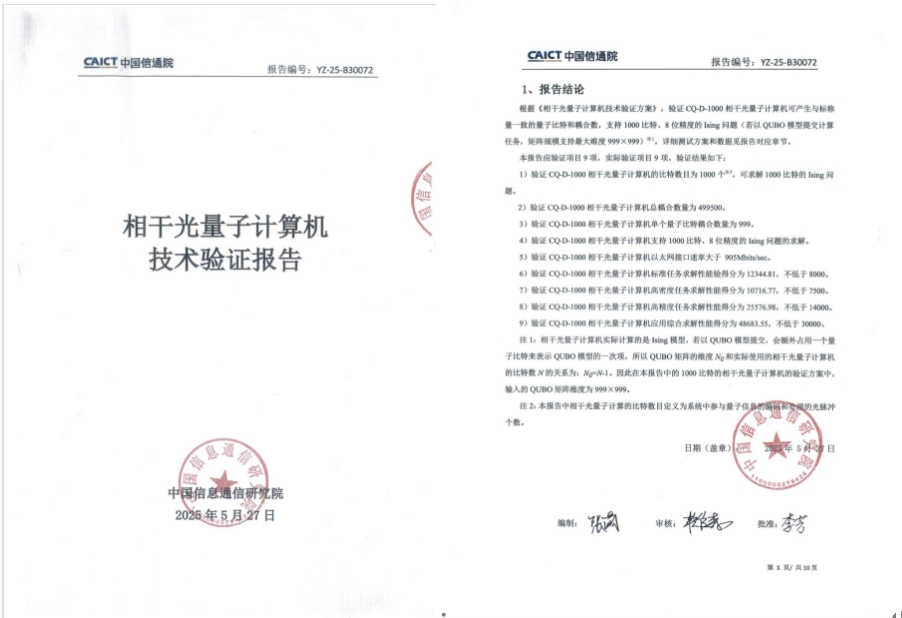
Since the launch of the company’s cloud service with 100 computing qubits, with the continuous increase in users such as government agencies, enterprises, scientific researchers, and quantum algorithm developers, the cumulative number of platform calls for solutions has exceeded 68 million times, covering more than 900 universities and colleges, and the number of developers participating in R & D has exceeded 10,000. Based on the first – hand feedback from a large number of users and developers, Boson Quantum continuously adjusts the R & D direction of the overall hardware and software system. It adheres to being driven by real needs rather than research indicators, forms a flywheel effect for product iteration, further meets real – world application needs, and provides quantum computing solutions that the market really needs.
“Quantum Computing + AI” Is the Vast Ocean, Creating a Practical Scenario Ecosystem
Just as GPUs accelerated vector operations and promoted the development of deep neural networks, the new computing paradigm of quantum computers brings new opportunities for AI model transformation. Based on the Boltzmann machine proposed by Geoffrey Hinton, the pioneer of neural networks and the 2024 Nobel Prize laureate in physics, Boson Quantum has a highly forward – looking exploration of a new paradigm for quantum neural networks. It cleverly uses the mathematical equivalence between the Ising model and the Boltzmann machine, replaces traditional methods such as Gibbs Sampling with quantum sampling, solves the problem that the Boltzmann machine cannot be efficiently trained due to high complexity, and creates a “killer application” for quantum AI + biopharmaceuticals.
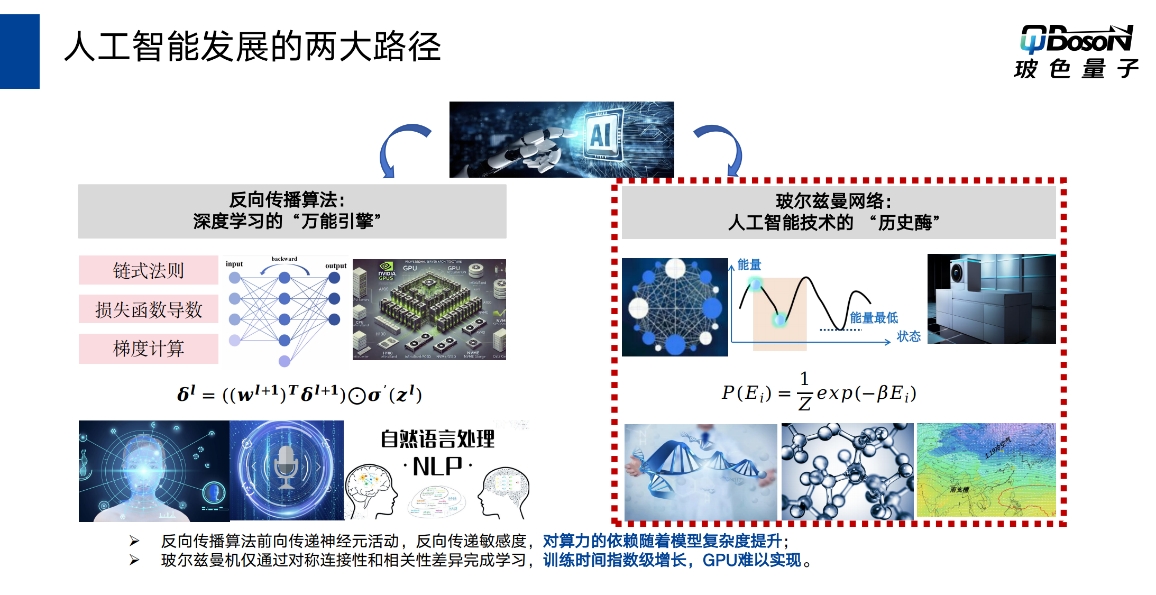
As of now, the Boltzmann machine – variational autoencoder (QBM – VAE) trained by customers based on Boson Quantum’s coherent optical quantum computer has been applied in multiple scenarios such as polypeptide generation, small – molecule generation, single – cell clustering, mRNA vaccine design optimization, and protein multi – omics analysis. It has been proven to effectively shorten the drug R & D cycle, improve the accuracy of genomics research, or reduce drug R & D costs.
Trinity: Initiating a New Era of RNA Optimal Design, “Hardware – Paradigm – Algorithm”
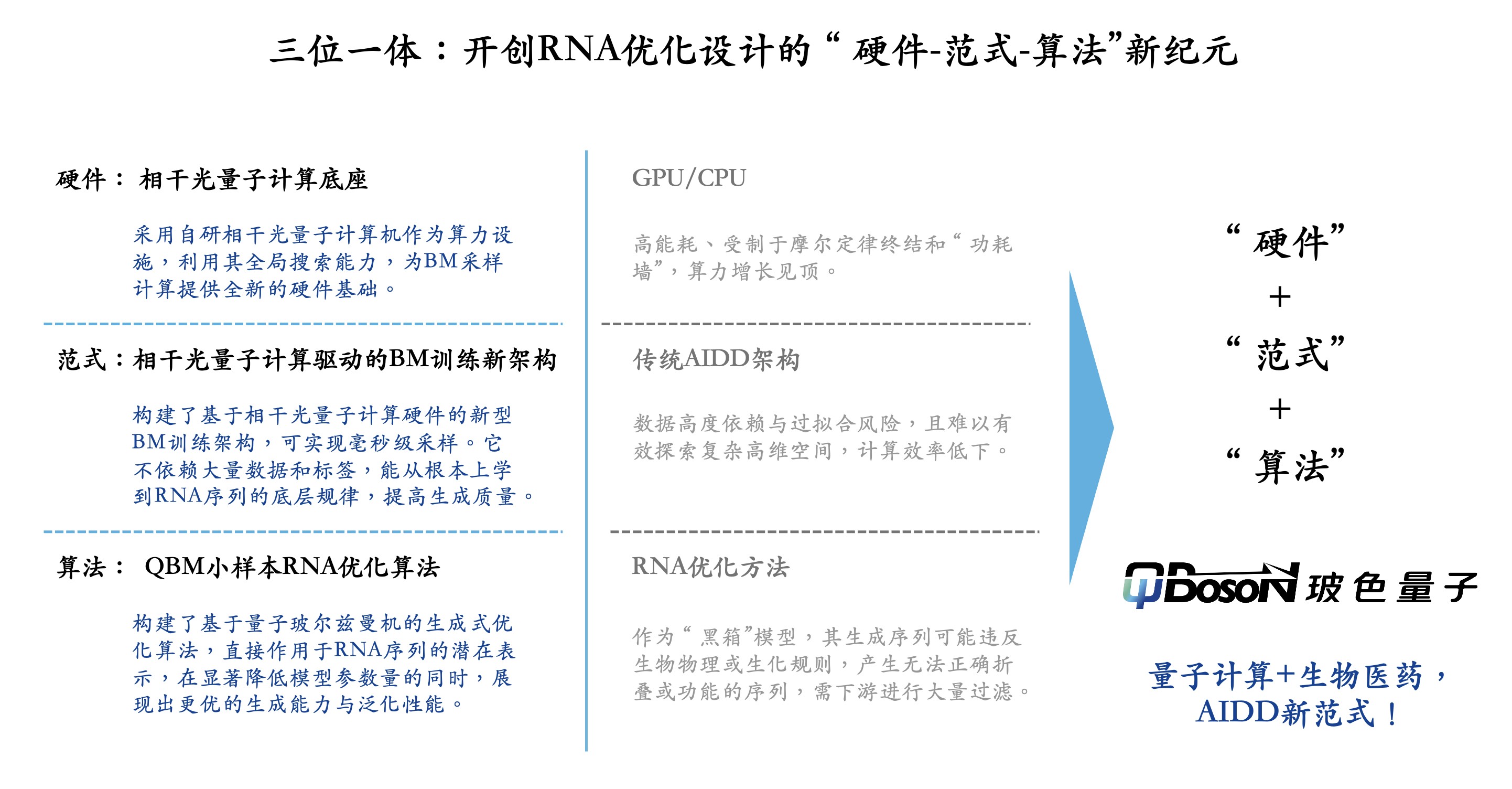
In terms of ecological cooperation, Boson Quantum has also explored practical quantum computing applications with the Guangzhou National Laboratory, Shanghai Jiao Tong University, the School of Pharmaceutical Sciences of Sun Yat – sen University, Beijing Cancer Hospital, and Tsinghua Changgeng Hospital in scenarios such as protein structure prediction, molecular similarity screening, polypeptide docking, and allosteric site prediction. In addition, Boson Quantum has established a four – in – one cooperation system of “pharmaceutical companies – universities – hospitals – national laboratories”. In the future, it will cooperate deeply with top – tier universities, hospitals, and pharmaceutical companies to promote ecological co – construction, share quantum computing power and data resources, and accelerate the process of drug development and clinical verification.
Jiang Peixing, the chairman of Huade Science and Technology Innovation, mentioned that as a leading enterprise in quantum computing in China, Boson Quantum continuously promotes the R & D and application of coherent optical quantum computers. Its quantum computing power service is very strong and ranks among the world’s top – tier levels. Boson Quantum not only independently tackles key algorithms and application software in the field of quantum computing AI but also actively builds an ecosystem with industry partners and realizes real – world applications in fields such as AI, biomedicine, finance, and energy, strongly promoting the leap of China’s quantum computing from “laboratory R & D” to “industrial application”.
Wen Kai and Ma Yin, the founders of Boson Quantum, jointly stated that after this round of financing, Boson Quantum will continue to deepen its technological layout and ecological construction in the “quantum computing + AI” field. Based on the quantum Boltzmann machine, Boson Quantum will not only lead the basic research in life sciences and the drug discovery industry to accelerate towards a more precise and efficient R & D paradigm, opening a new paradigm for AI – based drug discovery but also comprehensively promote the implementation of practical quantum computing in various industries.
With the injection of funds, Boson Quantum will continue to invest in all areas of quantum computing, give full play to the advantages of domestic special – purpose quantum computing, and join hands with more and more strategic partners to consolidate the “Chinese foundation” of quantum computing power for all industries.
